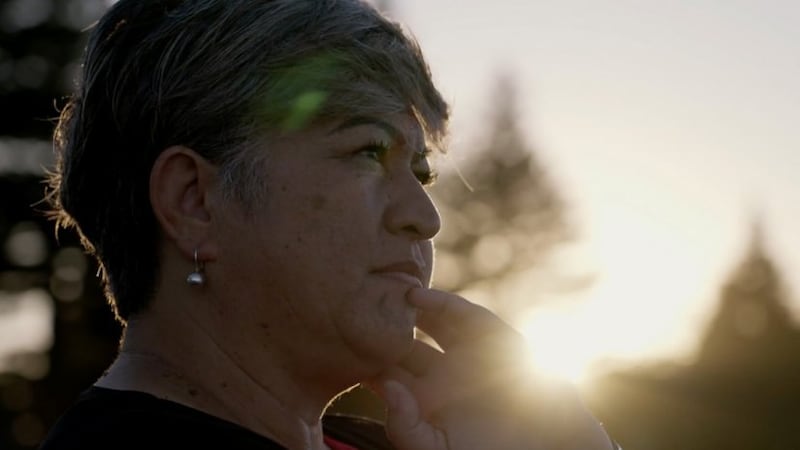Karanga and tikanga expert Rhonda Tibble remembers clearly the day she called in all her favours.
It was in January this year, when the car her mokopuna was in was stolen and Rhonda knew she had to put all of her energy and spiritual resources into getting her moko back.
“I have never asked this kind of prayer ever before, so much like pulling everything that you've ever been and marshalling it into the strongest arrow. That's what it felt like to pull and ask for that. And know my bow was correct. And a miracle happened that day.”
Within 10 minutes, the baby was found abandoned on the side of the road and the Police were called.
"I knew at the moment that I stopped and pulled over to do that karakia that it would be answered.
I just knew."
'Challenge is necessary'
Tibble’s unflappable belief in karakia comes from a lifetime of working in the realms of Māori spirituality. She is a teacher, composer, and consultant and also works with Corrections. She has run her own healing clinic and is often called upon for her understanding of the etheric.
She says it’s not up to her to convince people of spiritual concepts but enjoys opening up the dialogue and challenging people on their thinking.
“The value of challenge is to bring a diverse nature to the way we think about a matter. Challenge is necessary or else we’ll always get the same results.”
Tibble made a stir on social media last year, after stating she wished to speak only te reo Māori with women who wore moko kauae.
“And what was really interesting about that kauae stuff was, if people listened, I wasn't killing anybody, but all they heard was kill.”
Aiming to empower
She says it was a challenge for women to own their space and enjoy using te reo Māori at every opportunity.
“(Moko kauae) is not an end in and of itself. If that were the case, I wouldn't bother to continue to learn more and more about our world. There's no end to it. It's so rich.”
Tibble, a karanga expert, says all aspects of te ao Māori are attainable but people must work to achieve results.
She was first encouraged to perform karanga at 11 years old and says karanga is an under-utilised skill that can be applied to all realms of te ao Māori.
“It’s more than just haere mai.”
Rhonda says her aim by the time she is 80 is to have had the capacity to inform, to educate and enable other Maori women who are serious about Māori culture to take their rightful place on the marae atea.
“I'm not here to change other people's views. I'm merely here to put a kōrero that either enables you or disables you. But I prefer to think that what I say is empowering rather than disempowering.”

